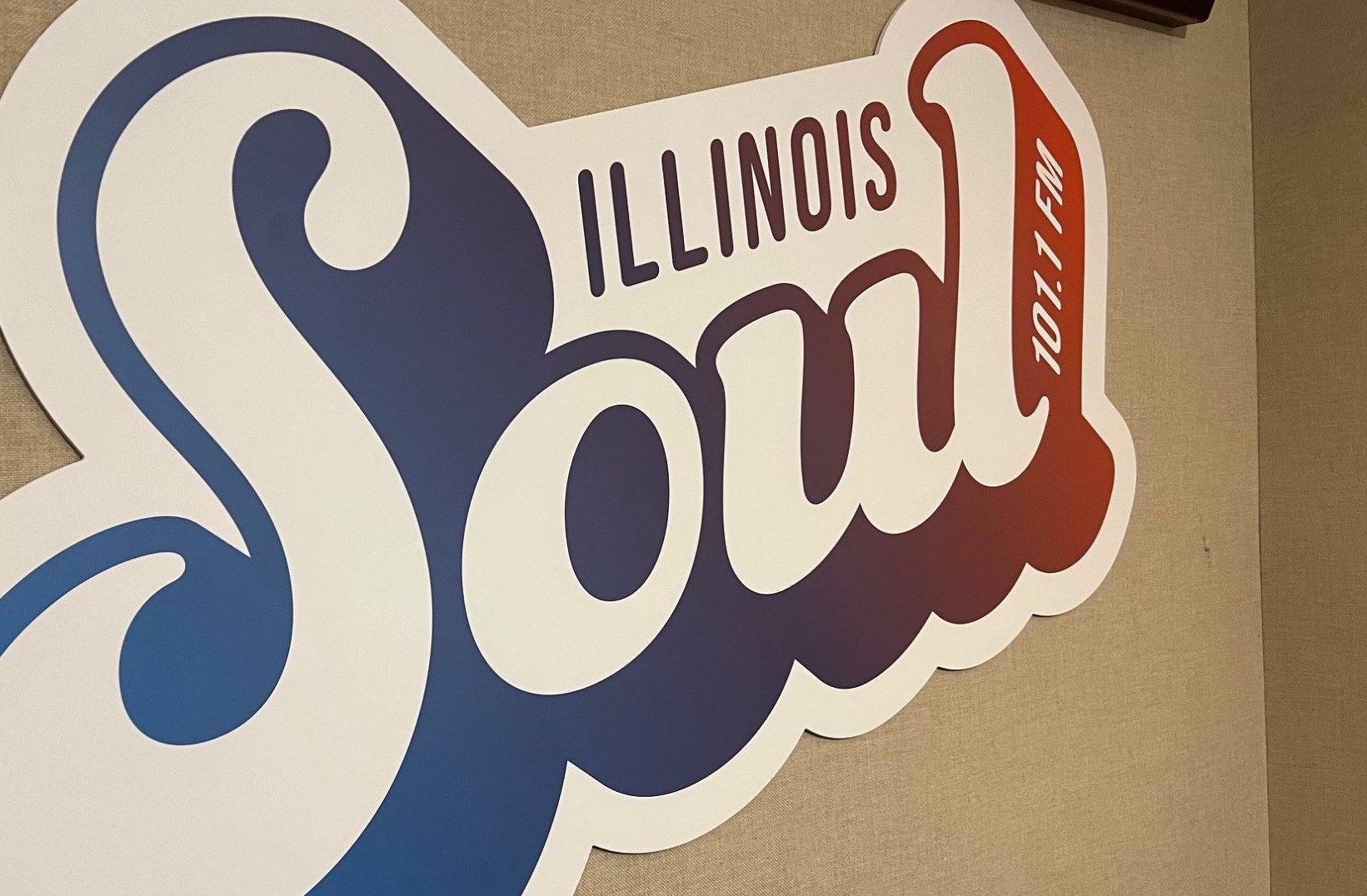Back in December, Illinois Public Media announced the launch of a brand new radio station that “elevates Black voices, music, and culture throughout central Illinois, and online, with the power of public media.” Illinois Soul, broadcast on FM 101.1 and streaming online, went live on February 1st with a programming lineup of popular NPR shows such as “It’s Been a Minute” and “Code Switch;” music blocks featuring jazz, R&B, and gospel; and a twice-weekly public affairs program called “Dialogue,” that focuses on issues important to Black communities locally. Illinois Soul is the first of its kind in the nation, and it came together in just a year with a formula that includes several crucial elements for getting an endeavor such as this off the ground.
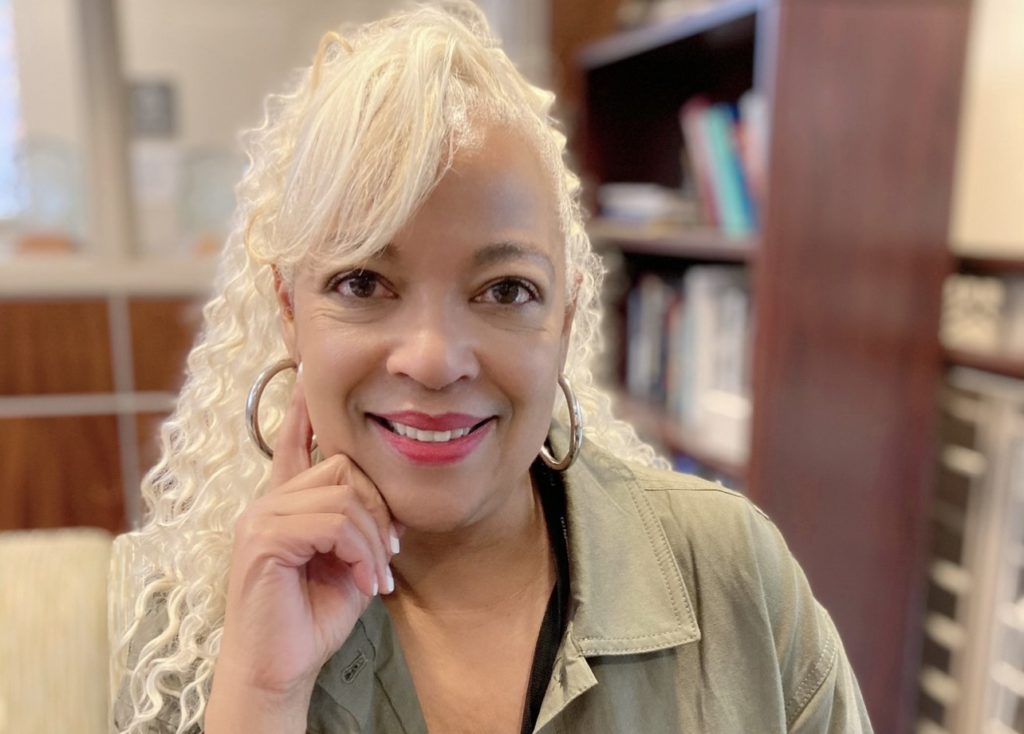
A “driving force” who knows Black radio and Black audiences
Of course, something like this takes a whole team of dedicated people to help it come to fruition, but Illinois Soul would not have happened without Jill Clements, who has been referred to as the “driving force” behind the station. Born and raised in Champaign, Clements has been immersed in the world of radio since she was a kid, beginning with shadowing her brother’s graveyard shifts at WPGU. Before she was even out of high school she had her own shift at WBML (Where Black Media Lives), the student-run station at Bruce Nesbitt African American Cultural Center. While in college at Southern Illinois University, she became the first female program director for their radio station. She spent over a decade working in marketing and promotions for V103 in Chicago before relocating back to her hometown.
Coming on board at Illinois Public Media as Assistant Corporate Support Director, she saw the value of public media, and how it utilizes all forms of media to promote its mission of educating the audience. However, that mission was not reaching everyone that it could have. Said Clements, “I saw the audience that it is known to serve, and I could see there was more audience out there.”
Clements began to engage that audience in 2021 with the “News, Brews, and Beatz” series. Initially focused on the impacts of gun violence, the series brought in Illinois Public Media’s News and Public Affairs Director Reginald Hardwick and Champaign County Community Coalition’s Tracy Parsons to co-host alongside panels of community leaders. “The panel was always Black experts sharing their expertise and resources,” explained Clements.
The response to the series led Clements and the folks at Illinois Public Media to seek out something more consistent. “We wanted to go next level and be intentional about launching a Black radio station.” A public media outlet focused on Black audiences is a format that she said “doesn’t exist anywhere in the country. NPR is newstalk. If you hear music on NPR it’s jazz. That doesn’t really speak to the audience we’re cultivating.” What does work, said Clements, is R&B, neosoul, and smooth jazz, with specialty programming on the weekends, including gospel music. The other important element was including locally relevant content, which is where the previously mentioned “Dialogue” show comes in.
An endeavor of this magnitude and importance was going to require a solid team of invested individuals to help shape the station, and make sure that it was going to truly be for and by Black community members. Enter the community advisory board.
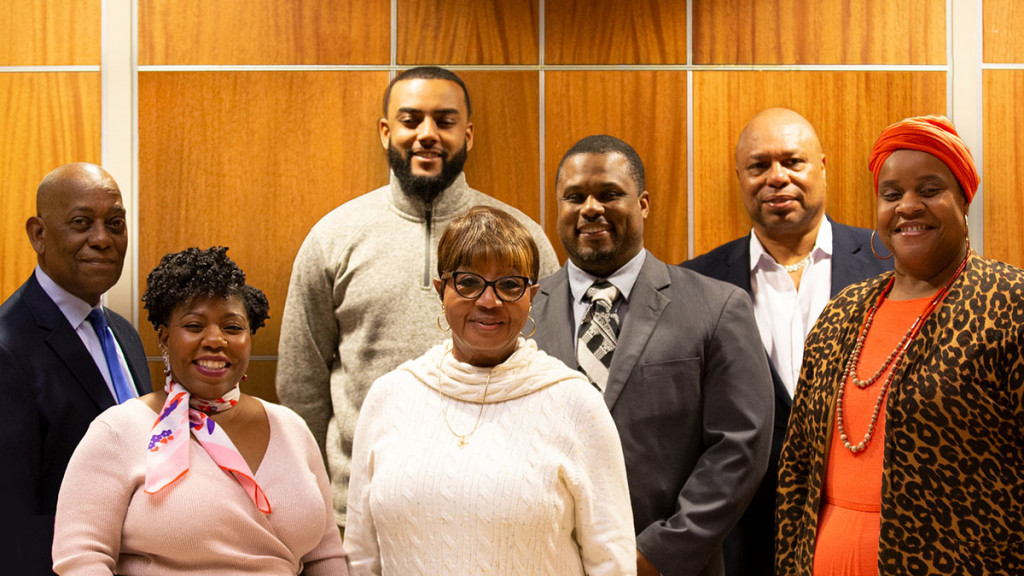
A team of Black campus and community leaders to help guide the process
“We assembled an Illinois Soul Community Advisory Board,” said Clements. “It’s the perfect mix of campus and community leaders. We meet with them regularly and get their feedback and share feedback that we’re getting.” I spoke with board members from each of those factions: campus and community. Minnie Pearson, president of the Champaign County chapter of the NAACP, was an obvious choice. Said Pearson herself, “In order to build relationships across the board on any and everything that will uplift the community, especially those that have ‘soft’ voices to no voices, I want to be at the table to advocate for them.”
Pearson is excited about the potential this radio station has for the community, and pleased with the work that has gone into making it a reality, especially when it comes to listening and including everyone’s voices. “It’s a huge, huge deal for us,” she continued, “As we worked with the staff, they really brought the vision to us. As we gave input, they brought it back to us and said ‘this is what you wanted, so this is what we’re doing.’” She sees this radio station as a “bridge builder” and a way to make connections and build trust between the University of Illinois, Champaign-Urbana’s Black residents, and the broader community.
Dr. Jason Chambers is someone bringing a campus perspective to the mix. He’s a professor of advertising at the University of Illinois, and also the Associate Dean of Diversity, Equity, and Inclusion for the College of Media, of which Illinois Public Media is a part. He described how in their early discussions about what Illinois Soul should look like, an emphasis on the local was a recurring theme. It’s one he resonated with, as someone who grew up in a household that placed importance on reading the local paper, watching local news, and listening to local radio.
He hopes that Illinois Soul can have this sort of impact on people here, that “it does become a source of local information for people. A turn to source where people get the feeling that at least for part of the programming week, or the programming day, they’re going to have something of interest to me.”
He echoed Pearson’s sentiment about establishing trust, and how important that was for folks in the Black community. It was crucial to everyone on the board that this was more than just something that would make a big splash then fade away.
A big piece to establishing that trust with the community was making sure they were engaged in the process.
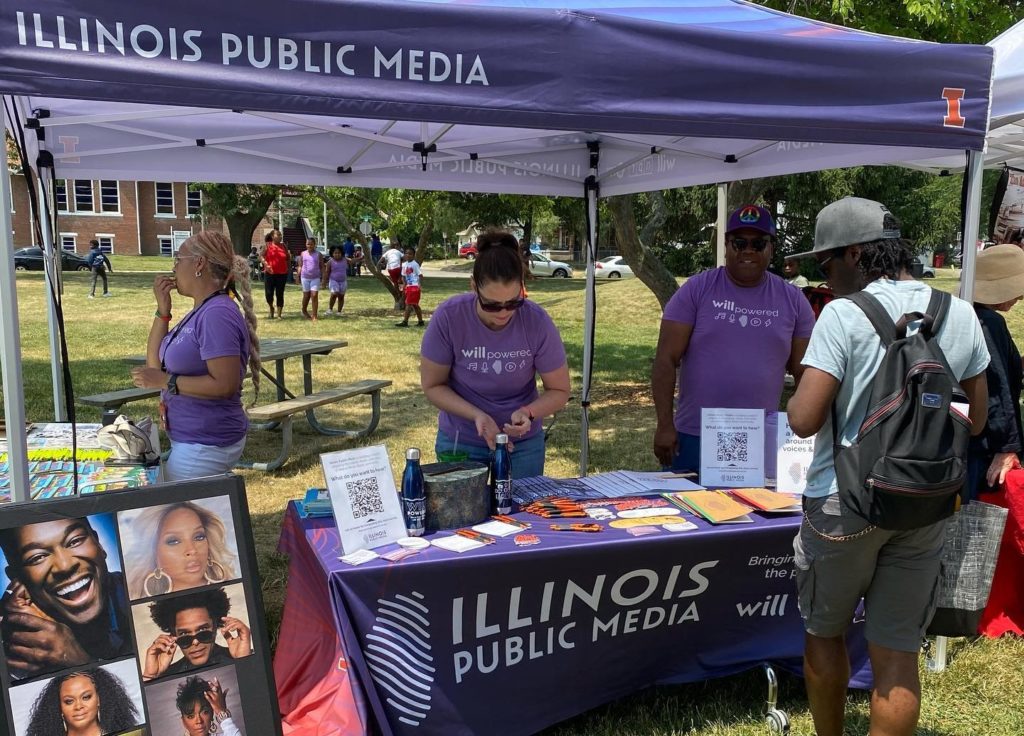
Community members looking for media for them and by them
Clements detailed the extensive work they did to reach out to the community, and their potential audience. “We spent over nine months in the community at different outreach events. We were everywhere from C-U Days to Jettie Rhodes to events at Krannert [Center for the Performing Arts]. We surveyed everywhere we could.” In total, they gathered and reviewed about 400 surveys that asked community members what they wanted to hear on Illinois Soul, and what topics were important to them.
The team also conducted listening sessions with community members, and topics that continually came up included mental health and wellness, changing narratives, entrepreneurship, and development of youth programming.
Clements echoed Chambers’ sentiments about the importance of this station being Black-led and how that would play into how it was received by the community. “We knew that we had to have the trust of the community, the respect of the community, and the commitment that we weren’t just doing this for six months.”
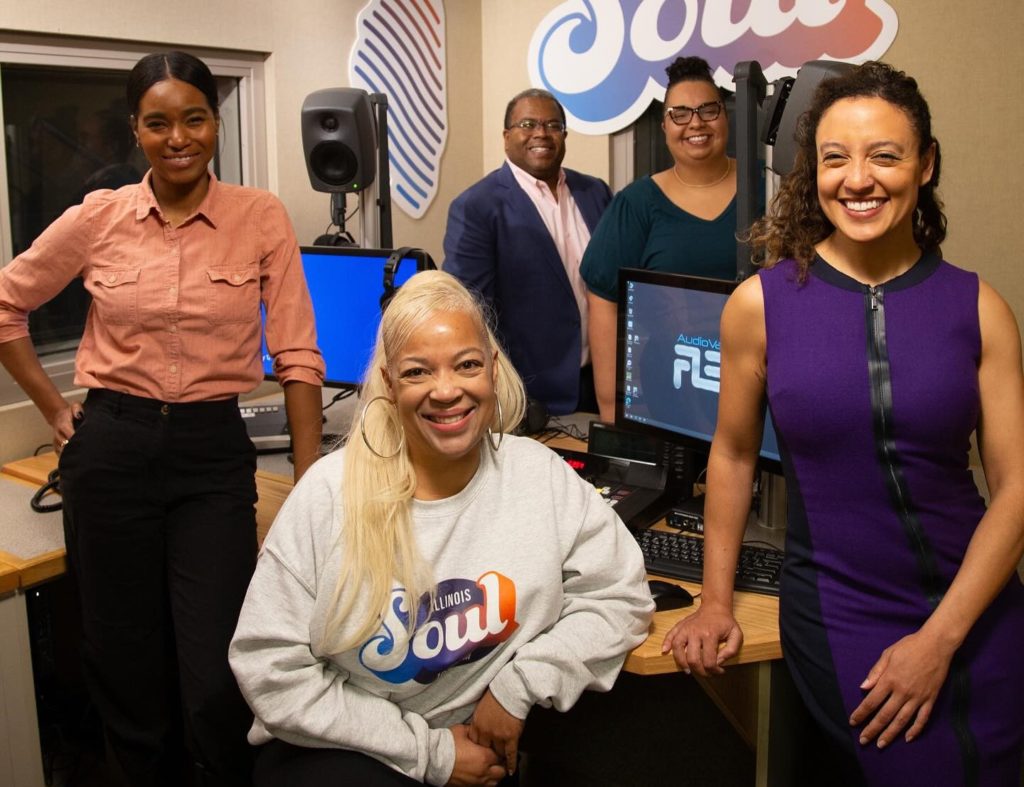
A dedicated team of public media professionals who are invested in the mission
Clements is part of an Illinois Soul team dedicated to making this thing a go. But, the key to making sure this was a station with staying power was getting buy-in from the whole of the Illinois Public Media staff. This was not an outside group coming in to build a station. Illinois Soul was built from within, while Clements and other staff were keeping on top of all the other day-to-day responsibilities. But according to Clements, “Everybody brought their ‘A’ game.” The staff went through Diversity, Equity, and Inclusion training, and were invited to bring all of their questions and concerns to the Illinois Soul team. “We had to be mindful that in order for it to resonate outside of our doors, we had to be solid in here.”
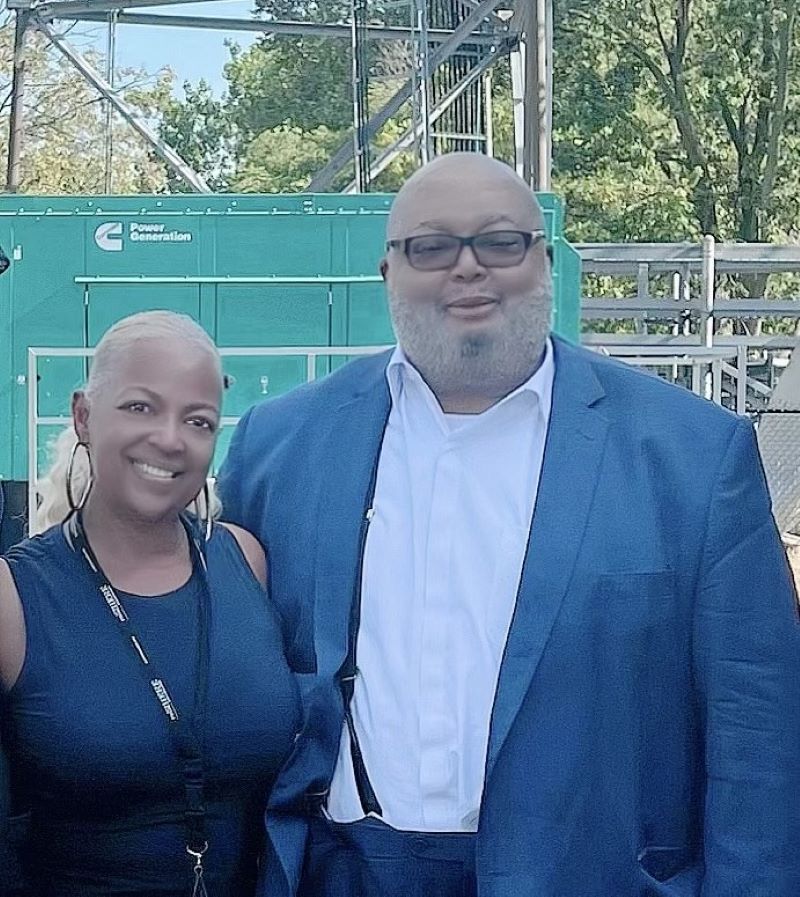
An “urban programming guru” to consult on the project
That guru is Maxx Myrick. Said Clements, “when we were formulating all of this, Moss [Bresnahan, Executive Director of Illinois Public Media] asked if there was someone I could reach out to to let them know what we’re doing, to get some feedback and information. I reached out to [Maxx].” Clements and Myrick were a dynamic duo at V103 in Chicago, where he was in operations and programming. Myrick has been in the radio business for 47 years, and has built and operated stations in places like Chicago, Atlanta, and New York. Clements contacted Myrick for advice, and got a consultant that helped Illinois Soul develop its music profile.
When I spoke with Myrick, I asked why he decided to get involved in this way. His reply? “Because it was Jill.” But it was more than that. He continued, “I thought it was worthy, and important…I always believe that populations should be represented and have a voice. When [Jill] said what she was trying to do, I said ‘let me help you.’”
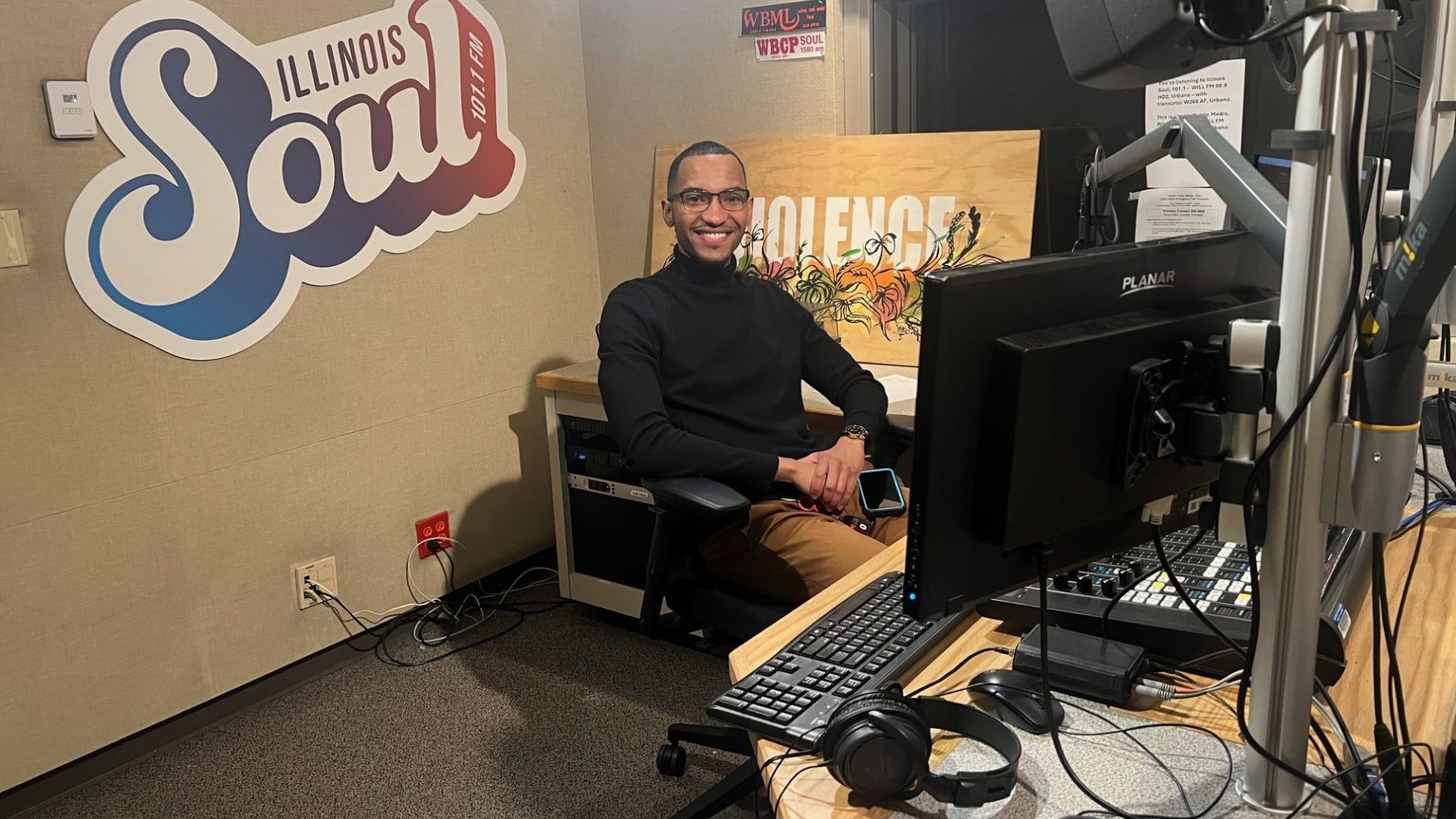
Programming that educates, informs, and entertains, and brings that local element
Myrick spoke about the important elements for a successful radio station. “It’s all about content, localization, and engagement.” He described how important it was to talk to the community and the audience, to consistently engage with them. He also hit on a refrain that I heard over and over from each of these Illinois Soul stakeholders: “Local, local, local, local. That’s the difference.” That’s what makes radio relevant in an age of unlimited media sources. Clements wants to bring more local programming in as the station grows and evolves. Chambers emphasized the need for the station to reflect what’s happening in the community. He hopes “it truly becomes a station that has a greater emphasis on local programming, local information, and local content, and attention to issues. That people would really look at it as a local gem.”
Illinois Soul is just getting started. As Clements says, “We’re small and we’re mighty.” She has big plans for signature events and the team will continue to engage with the community to get feedback and make adjustments to make sure this station is one that they feel ownership of. But the validation is already there.
“Seeing people excited, saying it feels like a new day. When they hear this music that resonates with them, it’s like their own personal journey of growing up. It speaks to them, it speaks to our culture, it makes you feel good, it makes you seen and heard.”








